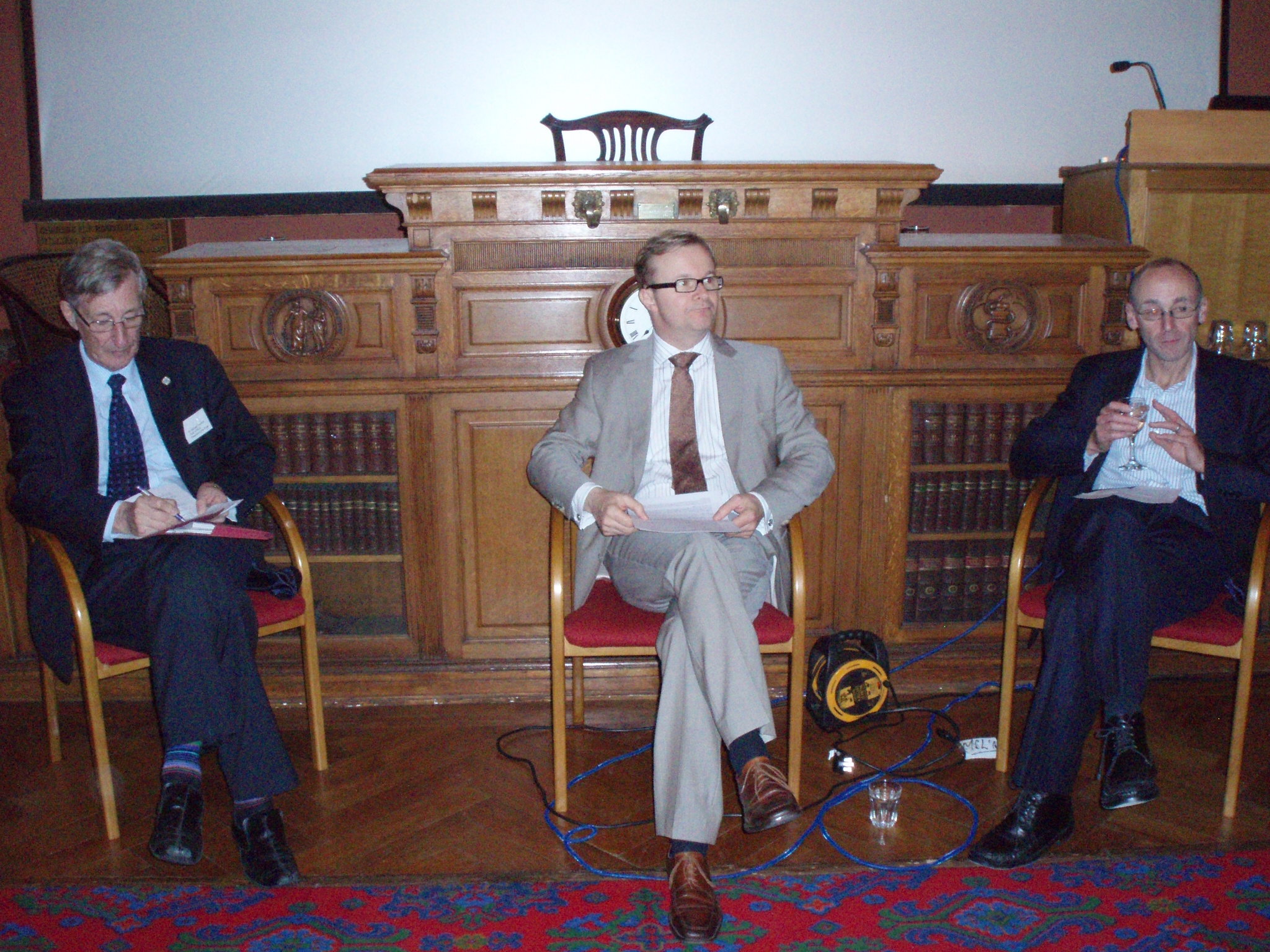Picture shows, from left Sir Michael Rawlins, (opposing the motion), Richard Vize, chair and Jeremy Taylor, proposing the motion that –
As a result of healthcare reform, NICE will become toothless and future prescribing will be hobbled.
Here follows a review of the debate following the MJA AGM on September 25 2012, that also appears in the next issue of MJA News.
The morion suggesting that reforms would lead to more patients being denied essential drugs was roundly rejected. NICE dentition was deemed durable.
The proposer was Jeremy Taylor, chief executive of the charity Patient Voices, a coalition of health and social care charities. Opposing the motion was Sir Michael Rawlins, the outgoing chairman of NICE, who has led the organisation since its inception in 1999. Their debate before MJA members at the Medical Society of London was chaired by Richard Vize, former editor of the Health Service Journal.
The argument centred on whether the pronouncements of NICE would be swept away in the drive to devolve spending decisions to the new grassroots network of clinical commissioning groups (CCGs) which will be in charge of purchasing care for primary care patients from April 2013 because, at the same time, CCGs are charged with producing £20 billion worth of cuts in overall healthcare expenditure.
‘NICE is respected and effective but its teeth are already blunted,’ Taylor said. ‘The reforms are likely to extract more teeth. CCGs will have restrictive budgets and drugs are a cost drain.’ He said devolving power to these front-line purchasers would revive and reinforce the postcode lottery where patients in some areas receive drugs which others are denied. He also referred to the much discussed but little defined notion of value-based prescribing, which is part of the reform package, and widely interpreted as a fresh effort to tighten the requirement for evidence of efficacy before drugs can be prescribed.
Opposing the motion, Rawlins conceded that value-based prescribing had not been explained, but in a fluent defence of his agency, he argued that the advent of CCGs would actually improve compliance with his institute’s guidance. ‘I am not bequeathing a toothless organisation,’ he said. ‘The new health and social care act will re-establish NICE under primary legislation. It specifically states that no one can interfere with NICE guidelines.’ He said any CCG failing to adhere to NICE prescribing guidance would be open to legal action by patients. He pointed out that NICE has a considerable reputation as an international arbiter of the cost-effectiveness of different drugs, and its guidance was widely used in the healthcare systems of developing countries around the world. Although he admitted its recommendations on the availability of in-vitro fertility treatment had not been taken up in Britain, he said adherence to other guidelines was ‘generally good’.
In addition he maintained that the scale of the £20 billion worth of savings demanded, would inevitably lead, not to piecemeal refusals to offer drugs, which constituted too small a proportion of the overall NHS budget, but rather to hospital and unit closures.
When the motion was opened to the floor several MJA members questioned the ability of patients to challenge unfair prescribing decisions and Rawlins conceded that judicial review, while certainly an option to anyone questioning non-compliance with NICE prescribing guidelines, was probably not accessible to the average patient. Christine Doyle pointed out that community health councils, abolished in 2003, had never been replaced with any system of patient representation. Nick Timmins suggested that the validity of the motion hung upon the ultimate interpretation of value-based pricing.
However, despite a number of robust challenges from Alan Maryon-Davis, Sue Lyon (concerned about local authority responsibility for public health), Deanna Wilson, Mike Smith, Jane Feinmann and others, on the final vote members overwhelmingly rejected the motion that the healthcare reforms would threaten NICE, with only five votes in favour.
Lois Rogers




Recent Comments